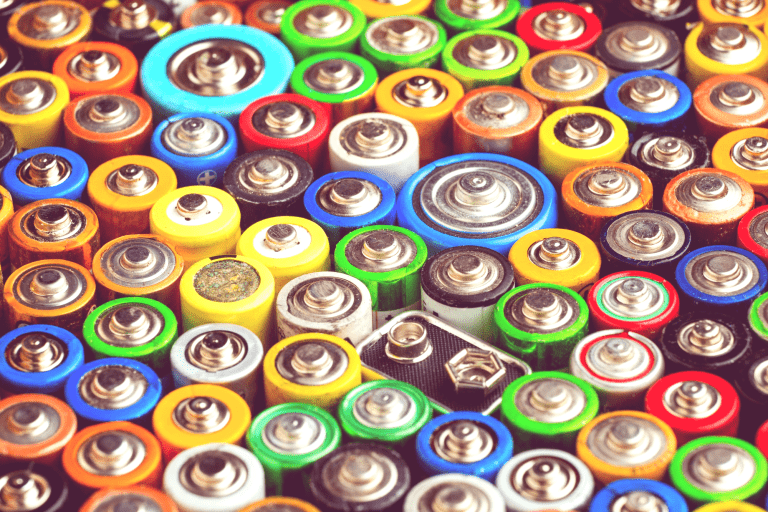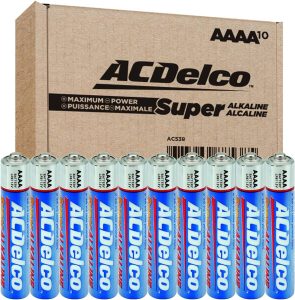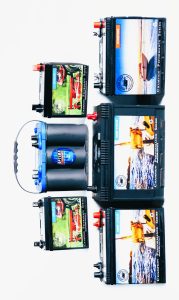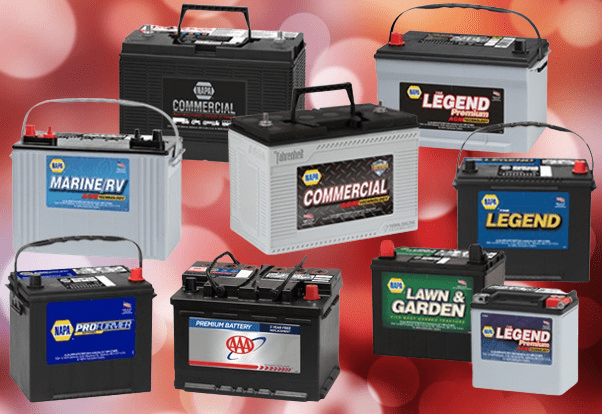Best Battery

Battery is a device that provides electrical power. It needs to use car, auto, electrical things. It commonly powers electrical devices like cars, laptops, smartphones, and other gadgets. Without a battery, many electrical devices would not be able to function properly.
The power an array of devices, from smartphones to electric vehicles. These energy storage units operate through electrochemical reactions within cells. They convert chemical energy into electrical energy.
Lithium-ion batteries are widely used for their high energy density and longer lifespan. They dominate the consumer electronics and automotive markets. Despite their popularity, challenges persist. These include limited capacity, safety concerns, and environmental impact during production and disposal.
In response, researchers are exploring alternative technologies. They want to enhance safety and energy density, such as with solid-state batteries. Advancements in materials science aim to replace conventional lithium-ion components. They aim to use more sustainable options. Additionally, this is happening. The growing demand for electric vehicles and renewable energy sources underscores the need for innovation in battery technology.
These concerns are associated with resource extraction and disposal. Battery technology evolves. It influences device performance. It also plays a crucial role in achieving a sustainable energy future.
The ongoing quest for more efficient and eco-friendly energy storage solutions is a key driver in shaping the trajectory of technological progress. It also influences environmental sustainability.
What’s The Best Battery?
The Best Battery is Lithium. Because the lithium battery gives you more energy than any battery cells. Lithium batteries other name is Li-ion battery.
Lithium battery advantages
- It is a rechargeable battery.
- It is cheap.
- Long-lasting battery.
- It charges faster.
- High power density.
- Safety than other batteries.
- Maintenance free battery
- Non – Hazardous battery
- Lithium battery has two editions
- AA
- AAA
- Constant power battery
The Different Types of Batteries
In the world, there are many types of batteries. We will provide some of the best battery information. Two types of batteries:
1.Primary cells:
You should discard a primary battery or primary cell after using it once. It is not recharged with electricity and reused like a secondary cell. The electro chemical reaction occurring in the cell is not capricious. This makes the cell unrechargeable.
There is some example of primary cell:
- Alkaline battery
- Atomic battery
- Aluminum–air battery
- Earth battery
- Frog battery
2.Secondary Cells:
A rechargeable battery is also called a storage battery or secondary cell. You can charge it, discharge it into a load, and recharge it many times. In contrast, a disposable or primary battery comes fully charged. After use, people discard it.
There is some example of Secondary cell:
- Flow battery
- Aluminum-ion battery
- Deep-cycle battery
- AGM battery
- Glass battery
Best Battery Sizes
Almost every environment utilizes batteries. The power thermometers, timers, automatic paper towel dispensers, and neon signs. We have a large selection of batteries in different sizes. This lets us find the one that best suits a specific circumstance.

1.AA Batteries
Also known as “double A”, AA batteries are the most popular battery size in the world. It is a popular battery size. Many applications use these batteries.
You can buy them almost anywhere. Everyone generally pictures double-A batteries when they think of standard replaceable batteries. People extensively use these batteries. From thermometers and staffing pagers to cordless phones, people use them in everything. AA batteries measure at 1.5V.
They work well for devices that need a somewhat high current draw but aren’t used constantly. Devices like clocks, which are always on but use minimal energy, can also use them.
2.AAA Batteries
Triple-A or AAA batteries are the most popular kind of battery. Small toys, thermometers, and calculators use them. AAA batteries are often used for small electronic devices.
These include TV remote controls, kitchen timers, toys, and bathroom scales. AAA batteries, like AA batteries, also measure 1.5V, but generate less energy due to their smaller size.
Small devices that don’t need a lot of energy use these batteries. For example, kitchen timers. The batteries will give long-lasting time, while still accomplishing their purpose. These compact batteries also power part control scales and thermometers.
3.AAAA Batteries
AAAA, batteries are not as common as their AA and AAA opposite. But, these thin batteries pack a powerful punch.
These small but powerful batteries are often used in some LED penlights. They are also used in laser pointers. They are also used in small devices.For example, glucose meters, hearing aid remote controls, and powered computer styluses.
4.C Batteries
People use these heavy-duty batteries for toys, some lights, portable radios, etc. Many automatic hand sanitizer dispensers need the use of this 1.5V battery.
Perfect for heavy-duty applications where batteries need frequent use. You can be sure that your device is operating carefully. These batteries are also used in restrooms that use battery-powered flush sensors.
5.D Batteries
Devices that need extended power time use these batteries. They work best in large flashlights and stereos. They’re also great for hands-free soap or paper towel dispensers.
Powering most automatic paper towel dispensers, D batteries are easy to use. These large, bulky batteries provide hours of use. The power a variety of commercial, heavy-use devices.
These include hand-free sensor faucets, air fresher systems, and soap dispensers.
6. 9V Batteries
The 9-volt battery is generally known for its rectangular shape. Devices that must have high voltage and lots of power use it.
9V batteries work well for devices like infrared thermometers, and battery-powered temperature alarms. They also work well for electronic part scales.
These products may all encounter extreme temperatures from food, and walk-in coolers. 9V batteries are durable and offer outstanding performance. They work in environments from 0 to 130 degrees Fahrenheit.
7.CR123A Batteries
Tactical equipment, wireless security, and home automation use this battery. It’s packed with power. The CR123A battery is shorter than an AA battery.
It generates 3 volts—twice the voltage of an AA battery. These batteries deliver a huge amount of power. They maintain a small size.
Ideal for devices that need a large of power, like LED flashlights. They ensure the greatest performance. This battery will last longer than most, thanks to it’s large power-to-size ratio.
8.23A Batteries
The small battery is commonly used in different small devices. These include garage door openers, specialized medical devices, watches, and remotes.
This battery delivers 12 volts of power. Applications that require strong, quick bursts of energy use it. These batteries were before used in photoflash film cameras. Now, they are mainly used for garage door openers. They are also used in wireless doorbells and keyless entry devices.
9.CR2032 Batteries
This small round battery offers a large of power in a compact size. This makes it unique compared to most other batteries.
The CR2032 battery is commonly used in watches, calculators, toys, and various medical devices. It has a voltage of 3 volts. These batteries provide long lasting, reliable power. They also have a very high weight-to-power ratio. Wristwatches and slim, compact thermometers use this battery. It is practically weightless and provides hours of use.
Best Battery Types
Various battery types cater to diverse needs. Lithium-ion batteries lead in energy density and longevity, ideal for electronics and electric vehicles. Nickel-metal hydride batteries offer a cost-effective alternative, often used in hybrid cars. Alkaline batteries are common in household devices. Each type excels in specific applications, addressing a range of power storage requirements.
Alkaline Battery
Alkaline batteries are a common power source. They excel at providing reliable, long-lasting energy for common household devices. These devices include remotes and toys. Their affordable price and widespread availability make them a popular choice. Alkaline batteries offer a stable voltage output. They are a convenient, cost-effective solution for everyday electronic needs.
Benefit:
Alkaline batteries are widely accessible.
These batteries are cost-effective.
Alkaline batteries provide a stable and consistent power output.
Alkaline batteries have a longer shelf life than some alternatives.
Alkaline batteries are versatile.
Lithium Battery
Their high energy density and longevity have made lithium batteries renowned. Thsey power an array of devices from smartphones to electric vehicles. With a lightweight design and efficient performance, they outshine alternatives in portable electronics. Lithium-ion variants dominate the market, offering a balance between power output and durability. Their use has revolutionized the energy storage landscape. It provides a reliable, long-lasting solution for the ever-growing demand for portable electronic devices. It also meets the demand for sustainable energy sources.
Benefit:
Lithium batteries have a high energy density.
Lithium-ion variants have a longer lifespan compared to many other battery types.
Their lightweight construction is helpful for portable electronics.
Lithium batteries provide efficient, consistent power output.
They are widely used in diverse applications, from smartphones to electric vehicles.
Carbon Zinc Battery
Carbon Zinc batteries, also known as zinc-carbon batteries, are cheap. Low-drain devices like flashlights and remote controls use them. They offer a cost-effective solution for everyday gadgets. Yet, they have a lower energy density than other types. These batteries have a moderate lifespan. They are suitable for devices with intermittent use. They are less powerful than some alternatives. But, their affordability and availability make them a practical choice for certain applications.
Benefit:
Practical Affordability
. Moderate Lifespan
These batteries are readily available in most stores.
Suitable for Low-Drain Devices.
Carbon Zinc batteries are budget-friendly.
Silver Oxide Batteries
Silver Oxide batteries have stable voltage and high energy density. These qualities have gained them recognition. Precision devices like watches and medical equipment use them. The chemistry of these batteries provides a consistent power output. It ensures accurate timekeeping and reliable performance in healthcare instruments. Silver Oxide batteries are a preferred choice for devices that demand precision. They also require a consistent power supply. They have an extended lifespan and are reliable. But, they are more expensive than some alternatives.
Benefit:
Silver Oxide batteries maintain a stable voltage throughout their lifespan.
. Silver Oxide batteries have a longer lifespan than many other battery types.
These batteries offer a high energy-to-weight ratio.
Precision Performance is ideal for precision devices.
The chemistry of Silver Oxide batteries ensures reliable and consistent power output.
Zinc Air Batteries
Zinc Air batteries use oxygen from the air to make electrical energy. They are efficient and lightweight. These batteries are commonly used in hearing aids and certain electronic devices. They offer a high energy density. Their design ensures a long shelf life by activating only when a seal is removed. Zinc Air batteries are not rechargeable. They provide a reliable power source for devices that need continuous, low-power operation. They are an eco-friendly and effective choice for specific use cases. Yet, they have limitations in high-drain applications.
Benefit:
Zinc Air batteries have a high energy-to-weight ratio. This makes them suitable for applications with specific energy needs.
. The lightweight design leverages oxygen from the air. This reduces the need for heavy internal components. It results in a lightweight battery design.
Removing a seal activates Zinc Air batteries. They have a long shelf life, making them reliable for intermittent use.
These batteries are eco-friendly. They use oxygen from the air and produce minimal waste.
Specific Use Cases: It is well-suited for continuous, low-power operations. This is particularly true in hearing aids and certain electronic devices
Best Rechargeable Battery Types
Rechargeable batteries come in various types. Nickel-Metal Hydride (NiMH) and Lithium-ion (Li-ion) are common. NiMH batteries are cost-effective and suitable for moderate-drain devices. Li-ion batteries offer high energy density and a longer lifespan. This makes them ideal for power-hungry gadgets like laptops and electric vehicles. Both types reduce environmental impact by minimizing disposable battery waste. NiMH has a lower environmental footprint. Li-ion dominates high-performance applications, exemplifying the versatility and eco-friendliness of rechargeable battery technologies.
Lithium-ion Batteries
Lithium-ion batteries are common in modern technology. The power devices from smartphones to electric vehicles. These rechargeable batteries have gained recognition for their high energy density and lightweight design. They offer prolonged use between charges. Lithium-ion cells contain a cathode, anode, and electrolyte, allowing for efficient energy transfer. Despite their prevalence, careful handling is crucial to prevent safety risks. These batteries have revolutionized portable electronics. They provide a reliable and long-lasting power source. The ever-increasing demand for energy in our interconnected world fuels this revolution.
Benefit:
High Energy Density: Lithium-ion batteries offer a superior energy-to-weight ratio. They provide ample power for various applications.
The composition of these batteries results in a lightweight structure. This contributes to the portability of devices they power.
Rechargeable: Lithium-ion batteries are rechargeable, reducing environmental impact and long-term costs.
Long Cycle Life: They have a longer lifespan compared to many other battery types. This reduces the need for frequent replacements.
Versatility: They are widely used in diverse applications. Portable electronics and electric vehicles use them. This showcases their adaptability and efficiency.
NiCd
Nickel-cadmium (NiCd) batteries, once popular, are rechargeable and known for their durability. They offer reliable performance in high-drain applications. Yet, their usage has declined due to environmental concerns related to cadmium. NiCd batteries have a memory effect. You can mitigate it through periodic deep discharging. NiCd batteries remain an option for specific applications. They prioritize durability and cost-effectiveness over environmental considerations. But, newer technologies overshadow them.
Benefit:
Nickel-cadmium (NiCd) batteries are rechargeable, allowing for many usage cycles.
NiCd batteries offer consistent and reliable power output throughout their lifespan.
They are relatively cost-effective compared to some other rechargeable battery types.
NiCd batteries perform well in a range of temperatures. This makes them suitable for various environments.
NiCd batteries have robust construction. They are durable and can withstand rough handling. This makes them suitable for certain industrial and heavy-use applications.
NiMH
Nickel-metal hydride (NiMH) batteries are rechargeable and widely used for various electronic devices. NiMH batteries offer a cost-effective and environmentally friendly power solution. These batteries are commonly found in household items. Examples include digital cameras, flashlights, and cordless phones. NiMH batteries may have lower energy density than lithium-ion batteries. But they are popular for applications that focus on cost-effectiveness, reliability, and rechargeability.
Benefit:
NiMH (Nickel-Metal Hydride) batteries are rechargeable, reducing environmental impact and long-term costs.
NiMH batteries generally offer higher energy capacity than NiCd batteries. This means they provide longer usage between charges.
NiMH batteries have a lower self-discharge rate compared to NiCd batteries. This means they keep their charge for a more extended period when not in use.
NiMH batteries are versatile. They are suitable for a wide range of applications. This includes household devices and power-hungry electronics. This provides flexibility in usage.
NiMH batteries exhibit minimal memory effect. They can be charged at any state of discharge. It does not negatively impact performance.
The Best Specialty Batteries
Specialty batteries serve unique purposes, tailored to specific applications. Zinc-air batteries are popular for hearing aids, offering long-lasting power. Silver oxide batteries excel in small electronics like watches. Button cell batteries power medical devices. Lithium coin cells are vital for memory backup in devices. We craft each specialty battery type to meet specific energy requirements. This ensures optimal performance in niche markets where standard batteries may not suffice. It provides reliable and efficient power solutions for specialized devices.
12 Volt Battery
A 12-volt battery is a common power source in automotive applications. It provides the electrical energy needed to start engines and power vehicle accessories. These lead-acid batteries consist of six cells, each producing around 2.1 volts. The 12-volt battery is widely used in cars, motorcycles, and boats. It plays a crucial role in powering the vehicle’s electrical systems. It is rechargeable. It’s designed for a balance between energy storage capacity, weight, and practicality. It delivers consistent voltage for automotive functions.
22 Volt Battery
A 22-volt battery is a versatile power source. It’s suitable for various applications, from power tools to small appliances. The voltage level falls between 18V and 24V. This balance provides portability and performance. Cordless drills, saws, and other electric tools use these batteries. They provide ample power for efficient operation. The 22-volt rating ensures reliable performance. This makes it a popular choice for professionals and DIY enthusiasts. They seek a robust and flexible battery solution.
44 Volt Battery
A 44-volt battery represents a power storage unit with a nominal voltage of 44 volts. Electric vehicles, renewable energy systems, and industrial applications use this voltage level. It enables efficient energy transfer and usage. These batteries often leverage lithium-ion technology for its high energy density and longevity. 44-volt batteries have many applications, such as electric bikes and backup power systems. They play a crucial role. They provide reliable and sustainable energy solutions for diverse electrical needs.
How Batteries Work
Batteries operate on the principle of electrochemical reactions that generate electrical energy. A chemical reaction occurs within a battery between positive and negative electrodes. This reaction creates a flow of electrons. In a typical alkaline battery, zinc serves as the negative electrode. Manganese dioxide acts as the positive electrode and an electrolyte facilitates ion movement. Electrons flow through an external circuit, creating an electric current that powers devices. Rechargeable batteries, like lithium-ion, reverse this process during charging. Understanding the electrochemical processes within batteries is crucial. It helps optimize their efficiency, longevity, and overall performance. It’s used in many applications in our daily lives.
Best Batteries Company
Automotive Batteries
Automotive batteries are vital components in vehicles. They serve as the primary source of electrical power. Most vehicles rely on lead-acid batteries due to their affordability and reliability. These batteries deliver the necessary power to start the engine. They also support various electrical systems. However, advancements include absorbent glass mat (AGM) and lithium-ion batteries. These offer higher performance and longer life. AGM batteries excel in deep-cycle applications and are spill-proof. Lithium-ion batteries are becoming popular for electric vehicles. They provide higher energy density. Automotive batteries continue to evolve. They improve efficiency, sustainability, and overall performance in modern vehicles.
Commercial Batteries
Commercial batteries play an important role. They power many industries and applications. These batteries ensure continuous and reliable energy. Uninterruptible power supply (UPS) systems and telecommunication infrastructure use them. Lead-acid batteries are common for their cost-effectiveness and reliability. Lithium-ion batteries gain prominence for their high energy density and longevity. In sectors like transportation, electric buses rely on robust commercial battery systems. Trucks also rely on these robust systems. This helps ensure sustainable operation. As technology advances, innovative commercial battery solutions continue to emerge. They meet the demands of diverse commercial enterprises. This contributes to efficiency and fosters a more sustainable energy landscape.
Building Facilities Batteries
Batteries are integral for ensuring uninterrupted power supply in commercial and residential buildings. Building facilities rely on them. These batteries are employed as backup systems. They provide a reliable source during power outages. This safeguards essential operations like lighting, security systems, and critical equipment. Sealed lead-acid or lithium-ion batteries are commonly used. They balance cost, performance, and maintenance requirements. Advancements in energy storage technology enable smart building facilities to integrate these batteries seamlessly. They optimize energy usage and often incorporate renewable energy sources. The reliability and efficiency of building facilities batteries contribute significantly to the overall resilience and functionality of modern structures in the face of power challenges.
Floor Scrubber Golf Cart Batteries
Floor scrubber golf cart batteries are specialized power sources designed for electric floor scrubbers and golf carts. These batteries provide the necessary energy to propel and operate these vehicles efficiently. Typically, deep-cycle lead-acid batteries are used for their ability to withstand frequent charging and discharging cycles. These batteries offer reliable performance, allowing floor scrubbers to maintain cleanliness in commercial spaces and golf carts to navigate courses smoothly. Regular maintenance, proper charging, and ensuring the correct battery specifications are crucial to maximize the lifespan and effectiveness of floor scrubber golf cart batteries, ensuring uninterrupted operation and longevity.
Marine, Lawn, and Garden Batteries
Marine, lawn, and garden batteries are designed for specific outdoor applications, providing reliable power for boats, lawn equipment, and garden machinery. These batteries are engineered to withstand harsh marine environments, featuring durable construction and resistance to vibration. They typically utilize deep-cycle technology, ensuring consistent performance over extended periods. Whether starting an outboard motor, powering electric trolling motors, or cranking lawnmower engines, these batteries offer dependable and long-lasting energy solutions. With variants like Absorbent Glass Mat (AGM) or flooded lead-acid, marine, lawn, and garden batteries cater to various needs, ensuring optimal performance and durability in outdoor settings.
AGM SLA Batteries
AGM (Absorbent Glass Mat) Sealed Lead Acid (SLA) batteries are advanced energy storage solutions with a unique design. The electrolyte is absorbed in a fiberglass mat, ensuring no leakage or maintenance. Ideal for uninterruptible power supplies (UPS), solar systems, and emergency lighting, AGM SLA batteries deliver reliable performance, deep cycling capabilities, and a prolonged service life. Their sealed construction allows for versatile installation, even in confined spaces. These batteries are known for their durability, minimal self-discharge, and compatibility with various applications, making them a preferred choice for users seeking efficient and hassle-free power storage solutions.
Best Motorcycle Powersport Batteries
Motorcycle powersport batteries are essential for starting, lighting, and powering motorcycles, ATVs, and other recreational vehicles. Designed to endure the rigors of vibration and temperature fluctuations, these batteries come in various types, including traditional lead-acid, maintenance-free AGM (Absorbent Glass Mat), and lithium-ion for lightweight and high-performance applications. AGM batteries are popular for their spill-proof design, while lithium-ion batteries offer compactness and rapid charging. Choosing the right battery ensures reliable starts and sustained power for accessories. Regular maintenance and proper storage are crucial for maximizing the lifespan of motorcycle powersport batteries, ensuring optimal performance on the road or trail.
Optima Batteries
Optima Batteries are renowned for their high-performance, durability, and innovative design. Using SpiralCell technology, they offer a unique spiral-wound lead-acid design, providing a strong and consistent power source. Optima Batteries excel in demanding applications, such as off-road vehicles and performance cars, delivering reliable starting power and deep cycling capabilities. Known for their exceptional vibration resistance, these batteries endure harsh conditions. The YellowTop series caters to dual-purpose needs, while the RedTop focuses on starting power for performance vehicles. The BlueTop series is designed for marine applications. Optima’s commitment to quality and cutting-edge technology has made them a trusted choice for enthusiasts seeking dependable power solutions in challenging environments.
Best Battery Reviews
When it comes to powering our electronic devices, vehicles, and gadgets, having the right battery is crucial for optimal performance. In this comprehensive battery review guide, we’ll explore some of the best options available across various categories.
1. Optima Batteries:
Known for their exceptional durability and performance, Optima batteries are a popular choice for automotive enthusiasts. The Optima RedTop, YellowTop, and BlueTop batteries cater to different needs, ensuring reliable starting power for vehicles and marine applications.
Optima RedTop: Perfect for high-performance vehicles, providing strong ignition power.
Optima YellowTop: Ideal for dual-purpose use, offering both starting power and deep cycling capabilities.
Optima BlueTop: Specifically designed for marine applications, providing reliable power for boats.
2.Motorcycle AGM SLA Batteries:
Motorcycle AGM (Absorbent Glass Mat) SLA (Sealed Lead Acid) batteries are designed to deliver reliable power for motorcycles without maintenance requirements.
Yuasa YTX12-BS: Known for its high-performance and durability, suitable for a wide range of motorcycles.
Chrome Battery YTX14-BS: Maintenance-free and vibration-resistant, ensuring a longer lifespan.
3.Commercial Batteries:
Commercial batteries are designed for heavy-duty use, providing reliable power for commercial vehicles and equipment.
Odyssey 31M-PC2150: A high-performance commercial battery with deep-cycle capabilities.
Interstate Batteries 12V 35Ah: Known for its durability and ability to handle heavy loads.
4.Lithium Batteries:
Lithium batteries are known for their lightweight design and high energy density, making them ideal for various applications.
Energizer Ultimate Lithium AA: Offers a long-lasting power source for high-drain devices.
Goal Zero Yeti Lithium Portable Power Station: A reliable power solution for outdoor enthusiasts.
5. Alkaline Batteries:
Alkaline batteries are widely used in everyday devices and come in various sizes.
Duracell Coppertop AA: Known for its long-lasting power and reliability.
Energizer Max AAA: Provides consistent power for low to mid-drain devices.
6.Specialty Sizes:
23A: A23 Energizer Alkaline Battery: Ideal for small electronic devices like keyless entry systems.
CR123A: Streamlight 85177 CR123A Lithium Batteries: Suitable for high-performance flashlights and cameras.
9V: Duracell Coppertop 9V Alkaline Battery: Offers reliable power for smoke detectors and other devices.
D, C, AAAA, AAA, AA: Consider mainstream brands like Duracell, Energizer, or Panasonic for these standard sizes, depending on your specific device requirements.


























Comment on “Best Battery”